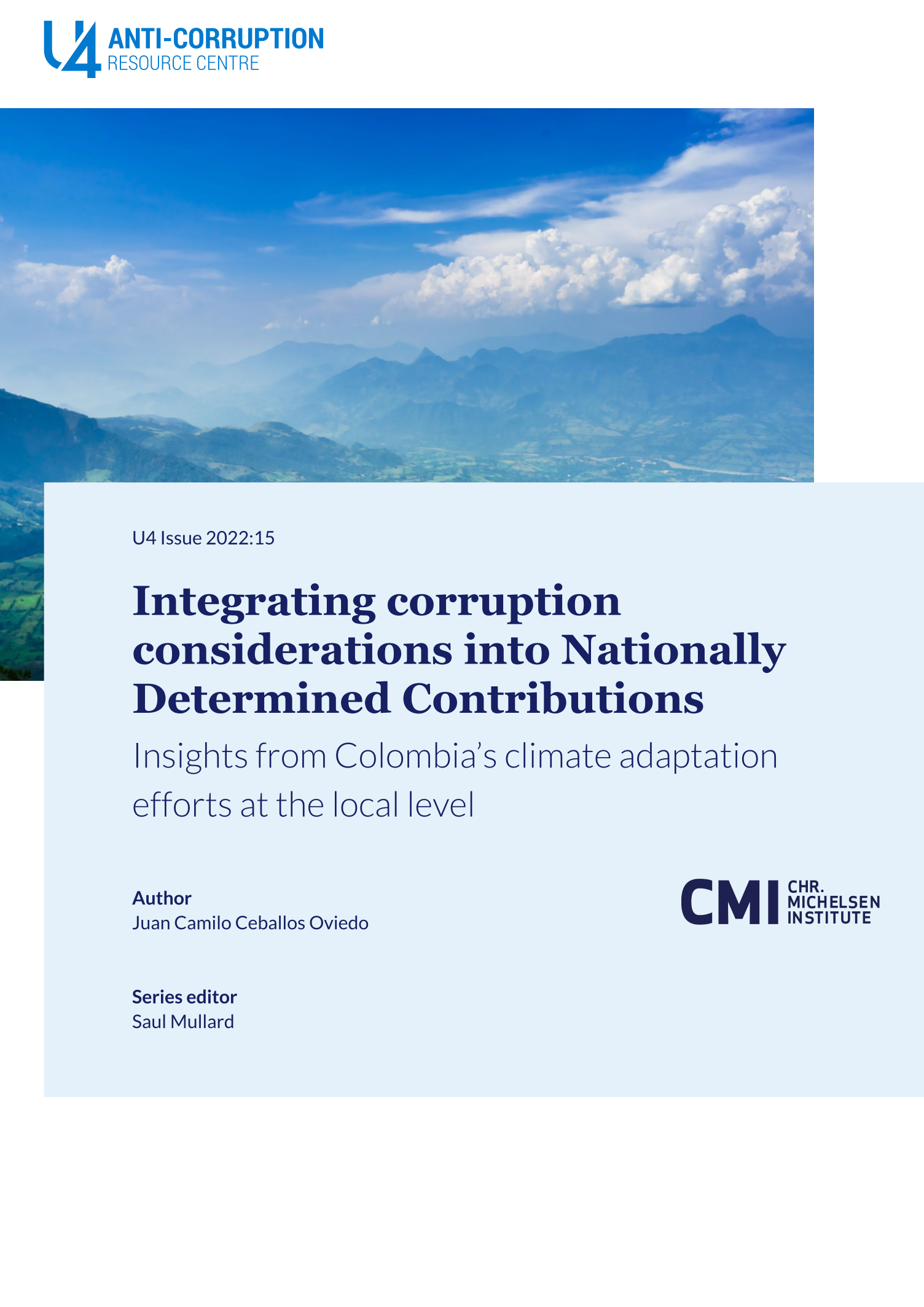Main points
- Local governments are a vital link in the chain of climate change adaptation and mitigation action. They are the ultimate level at which climate impacts, such as natural hazards, are experienced, and they can be an effective level at which to tackle them.
- Colombia’s latest Nationally Determined Contribution devolved many tasks and responsibilities to subnational and municipal governments. Among the sectors Colombia has prioritised in its NDC, the most vulnerable to corruption are environment, transport, and water and sanitation.
- Nationally Determined Contributions can open the door for corruption at the local level, including through flawed models of participation and a restricted civic space, and poor conditions for whistleblowing, reporting and protection.
- Local governments in Colombia and elsewhere are simply not equipped to meet their responsibilities under the NDCs, or to plan and implement climate-related policies. They lack institutional and financial capacity, and face enormous external challenges.
- Deforestation is a significant issue for local government in Colombia, creating a cycle of corruption. Organised criminals, officials and others facilitate deforestation, and the militarised response of the central government brings additional problems.
- Specific recommendations for national government, local government, private sector and donors involve improving transparency, dialogue, inclusion and participation at every level of decision making as critical ways of reducing corruption.
- ‘Grey’ (physical) infrastructure should not be the default mode for adaptation schemes. They rely on materials and construction processes that are open to corrupt actors. Nature-based solutions should be preferred, as they can be more effective, and less prone to corruption.



